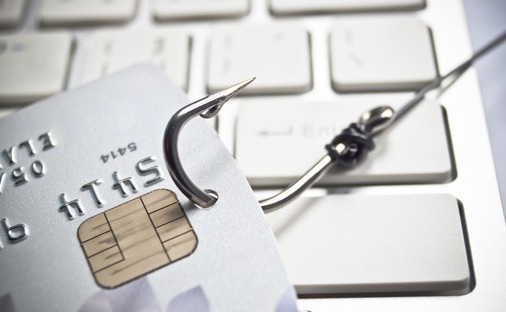
Fraud attempts today can take many forms: From phone calls, emails, pop-up advertisements, and even search engine results, malicious entities are constantly finding new ways to catch unsuspecting individuals off guard.
In an effort to fight these bad actors, we would like to offer some helpful tips on how to identify (and protect yourself!) from fraudulent activity you may encounter both on- and offline.
Avoid phony calls!
If you receive an unsolicited, unexpected phone call from a company – even one you recognize or receive services through – requesting personal information such as your credit card number, bank information, log in credentials, or social security number, DO NOT provide the information. Instead, hang up, retrieve the company’s contact information from a reliable source (such as their official website, product packaging, or contract information), and reach out to them via one of their official channels. By contacting the company via a legitimate, verified avenue, you are able to ensure you are communicating with the intended party.
Do not feel pressured to pick up calls from unknown numbers (especially if the area code is not one that you recognize, or if the caller ID is blocked); if the message is important, the caller will likely leave a voicemail.
Be wary of individuals guiding you to websites or having you download files under the guise of providing “technical support,” or granting remote access to your computer.
Many times, persons call unsuspecting customers representing themselves as “Microsoft Technical Support” or “Microsoft Security Services” advising you that your computer is infected, causing internet problems, or is at risk of some terrible problem. These calls are all phony and are an attempt to gain access to your computer to access your user names and passwords. Simply hang up on these calls.
We have received reports of “Revenue Canada” or “Canada Revenue Agency” calling customers with threats of police arriving at their door, arrest warrants or impending jail times, seized bank accounts or other doom and gloom that will descend upon them if they do not authorize credit card charges or provide banking information. Many times, these callers will “spoof” their calling number to look like it is from Ottawa or Hull Quebec. Again, simply hang up on these callers. Revenue Canada or the CRA will contact you in writing if there is a problem with your account,
Emails can be deceiving!
One of the most commonly-used avenues for unscrupulous individuals, emails can be made to look authentic in many ways – using trusted branding, urgent messaging, and coming from genuine-appearing addresses. These types of emails can also appear to come from personal friends, or even family.
When you receive a new, unsolicited email, always proceed with a skeptical eye. Attached files and links can look legitimate, but may lead to unwanted malware. Avoid clicking on links contained in this type of email – instead, manually navigate to the website via your favorite web browser to reach the intended webpage.
If you are uncertain as to whether an email is authentic, reach out to the person or company who sent the email directly using contact information from a reliable source (such as a company’s official website, product packaging, or contract information) to verify its contents.
Be wary of imposter results!
While search engines can be a helpful tool, be sure to carefully scrutinize the results that are displayed before you click any links. Ads and other illegitimate links can appear to be associated with authentic websites, but instead lead to copycat or other malicious sites.
Remember: We will never request sensitive personal information like passwords, credit card numbers, or bank account information. We will not call or email you with requests to access your computer, and we do not offer virus protection plans.

